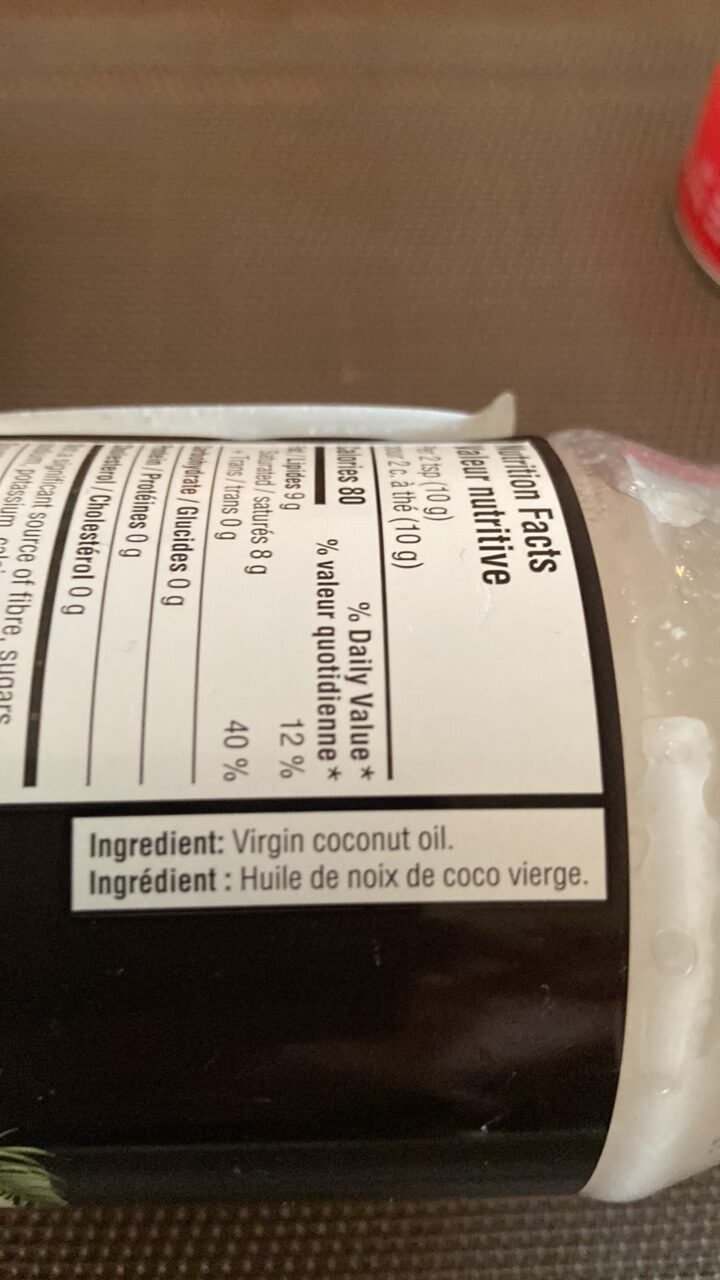
Barcode: 059749950541
Virgin coconut oil
HALAL
📝 Reason: Virgin coconut oil consists solely of plant oil from coconuts, obtained by mechanical processes. It contains no animal products, alcohol, or any Haram/Doubtful E-code additives. According to the Quran (5:3), Muslims are prohibited from consuming certain ingredients but coconut oil is fully permitted and is widely accepted as Halal by reputable authorities such as IFANCA and Halal Food Authority.
🏷️ Category: Oil
📄 Certificates: Vegetarisch, Vegan
Ingredients:
Details
Understanding the Halal Status of Virgin Coconut Oil
When it comes to dietary choices, many individuals seek to understand the Halal status of various products. Virgin Coconut Oil is often at the top of the list for those looking for a versatile cooking oil. But is Virgin Coconut Oil Halal? This post will thoroughly explore its ingredients and Halal certification.
What Makes Virgin Coconut Oil Halal?
Virgin coconut oil is derived solely from the meat of coconuts through mechanical means such as cold-pressing. According to Islamic dietary laws, it contains no animal products, alcohol, or any Haram (forbidden) additives. The Quran (5:3) explicitly prohibits certain ingredients, yet the natural composition of virgin coconut oil adheres to these guidelines. Reputable Halal certification authorities, including the Islamic Food and Nutrition Council of America (IFANCA) and the Halal Food Authority, recognize virgin coconut oil as a Halal product.
Ingredient Breakdown and E-Numbers
The ingredient list for Virgin Coconut Oil is straightforward—it consists entirely of virgin coconut oil. There are no E-numbers associated with this product, meaning it does not contain any synthetic additives that may be questionable. The purity of virgin coconut oil supports its Halal status. Below is detailed information on its key component:
Virgin Coconut Oil
- Status: Halal
- Details: Virgin coconut oil is a pure plant-based oil extracted mechanically or by cold-pressing the coconut meat, without any chemical additives or processing aids. It does not include any animal derivatives or alcohol. Furthermore, it is not linked to any Haram or doubtful E-codes.
- Source: IFANCA, Halal Food Authority, NCBI Article
The Importance of Certificates
Besides understanding the ingredients, the certification of Virgin Coconut Oil also plays a crucial role in confirming its Halal status. This product is not only certified as Halal, but it also holds Vegetarian and Vegan certifications, making it appealing to a broader audience, including those who follow plant-based diets.
The Role of Halal Certification Organizations
Organizations like IFANCA and the Halal Food Authority provide guidelines and standards for Halal food products. Their certifications ensure that the products are free from any materials or processes that contravene Islamic law, further guaranteeing that the oil remains purely plant-based.
Conclusion
In conclusion, Virgin Coconut Oil is a wholesome, Halal-certified oil suitable for cooking, baking, and even skincare. Its simplicity and purity contribute to its alignment with dietary laws, making it a reliable choice for Muslim consumers. By ensuring it is free from animal products and chemical additives, Virgin Coconut Oil stands out as a safe option for those adhering to Halal standards.
As consumers become more aware of their dietary choices, Virgin Coconut Oil will continue to be a popular choice in both culinary and health applications—uncomplicated, natural, and Halal.
